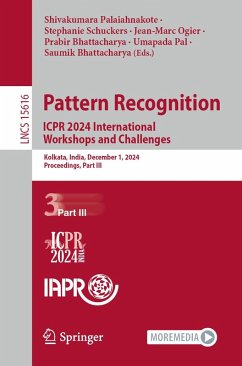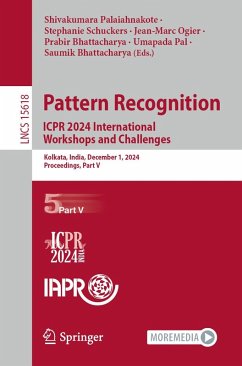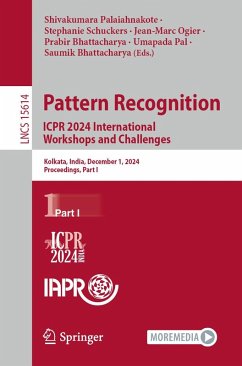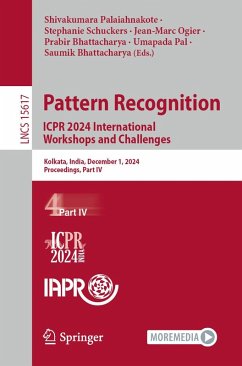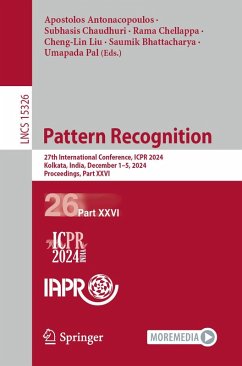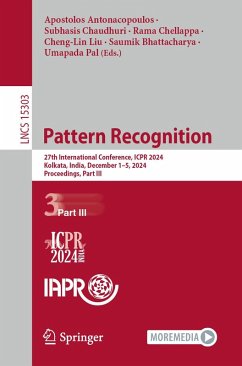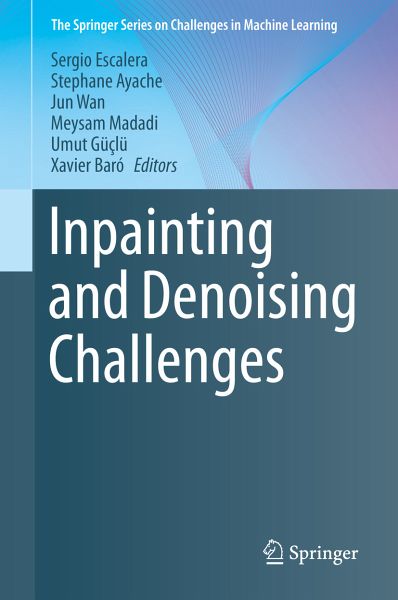
Inpainting and Denoising Challenges (eBook, PDF)
Versandkostenfrei!
Sofort per Download lieferbar
40,95 €
inkl. MwSt.
Weitere Ausgaben:

PAYBACK Punkte
20 °P sammeln!
The problem of dealing with missing or incomplete data in machine learning and computer vision arises in many applications. Recent strategies make use of generative models to impute missing or corrupted data. Advances in computer vision using deep generative models have found applications in image/video processing, such as denoising, restoration, super-resolution, or inpainting.Inpainting and Denoising Challenges comprises recent efforts dealing with image and video inpainting tasks. This includes winning solutions to the ChaLearn Looking at People inpainting and denoising challenges: human po...
The problem of dealing with missing or incomplete data in machine learning and computer vision arises in many applications. Recent strategies make use of generative models to impute missing or corrupted data. Advances in computer vision using deep generative models have found applications in image/video processing, such as denoising, restoration, super-resolution, or inpainting.
Inpainting and Denoising Challenges comprises recent efforts dealing with image and video inpainting tasks. This includes winning solutions to the ChaLearn Looking at People inpainting and denoising challenges: human pose recovery, video de-captioning and fingerprint restoration.
This volume starts with a wide review on image denoising, retracing and comparing various methods from the pioneer signal processing methods, to machine learning approaches with sparse and low-rank models, and recent deep learning architectures with autoencoders and variants. The following chapterspresent results from the Challenge, including three competition tasks at WCCI and ECML 2018. The top best approaches submitted by participants are described, showing interesting contributions and innovating methods. The last two chapters propose novel contributions and highlight new applications that benefit from image/video inpainting.
Inpainting and Denoising Challenges comprises recent efforts dealing with image and video inpainting tasks. This includes winning solutions to the ChaLearn Looking at People inpainting and denoising challenges: human pose recovery, video de-captioning and fingerprint restoration.
This volume starts with a wide review on image denoising, retracing and comparing various methods from the pioneer signal processing methods, to machine learning approaches with sparse and low-rank models, and recent deep learning architectures with autoencoders and variants. The following chapterspresent results from the Challenge, including three competition tasks at WCCI and ECML 2018. The top best approaches submitted by participants are described, showing interesting contributions and innovating methods. The last two chapters propose novel contributions and highlight new applications that benefit from image/video inpainting.
Dieser Download kann aus rechtlichen Gründen nur mit Rechnungsadresse in A, B, BG, CY, CZ, D, DK, EW, E, FIN, F, GR, HR, H, IRL, I, LT, L, LR, M, NL, PL, P, R, S, SLO, SK ausgeliefert werden.



